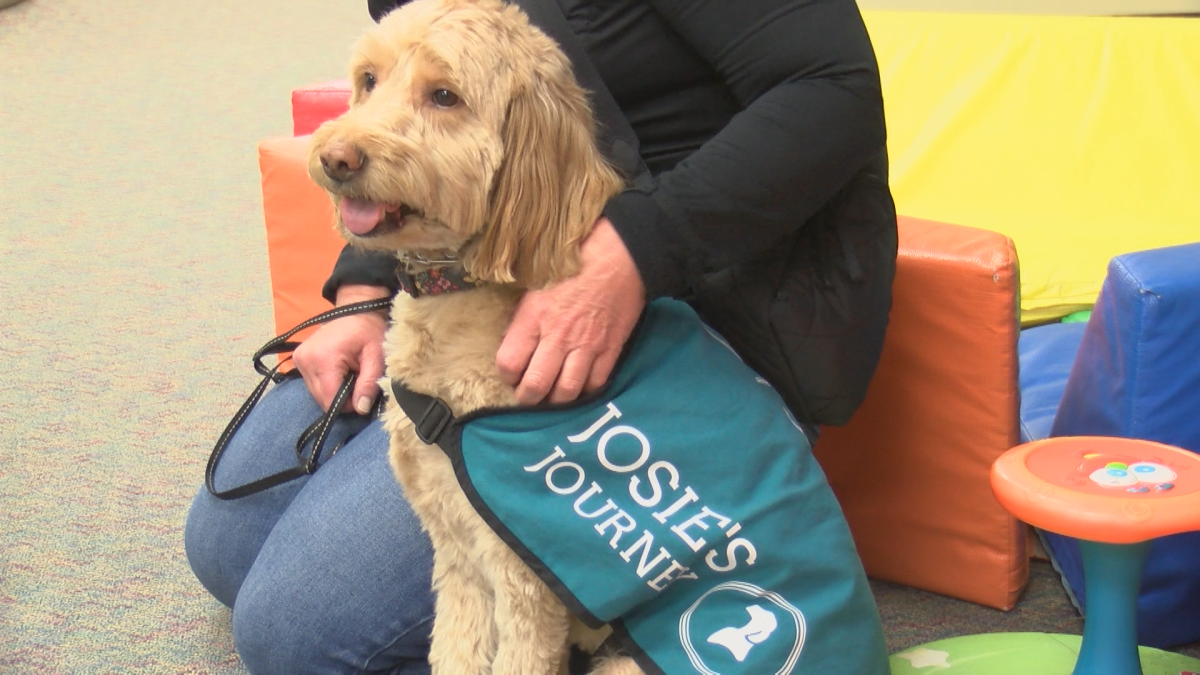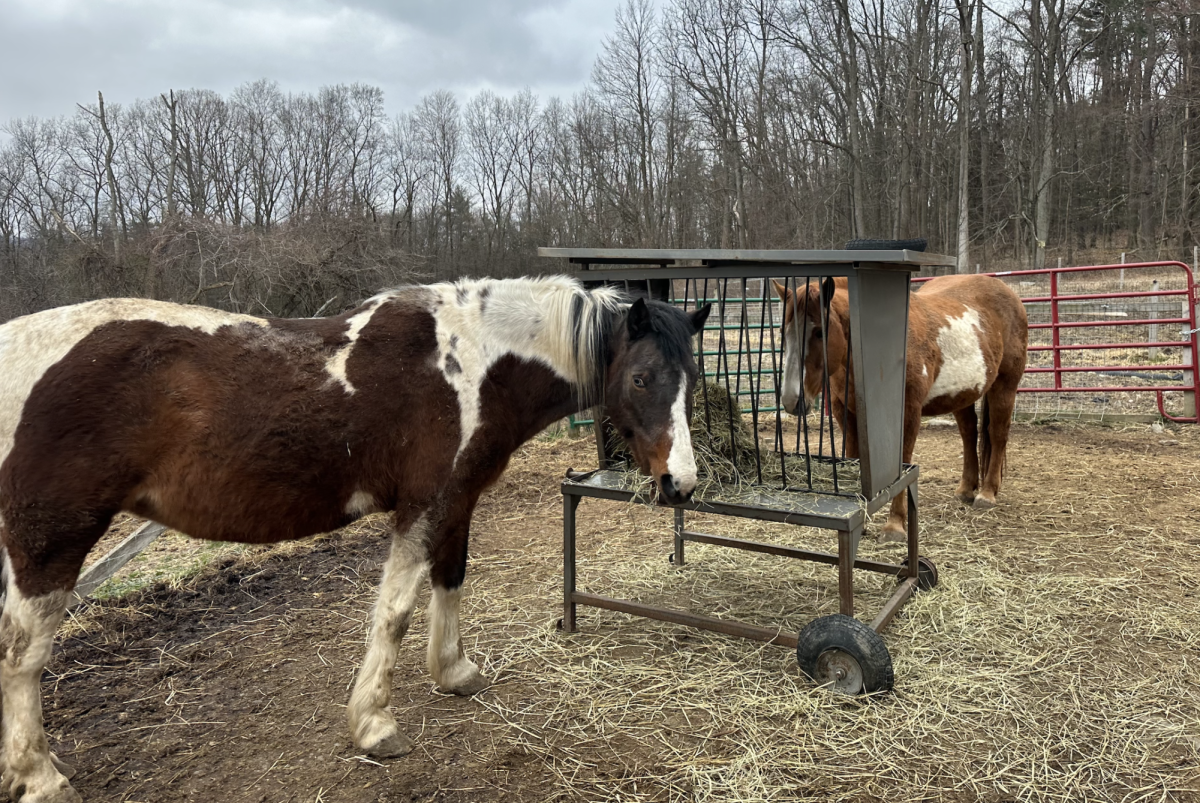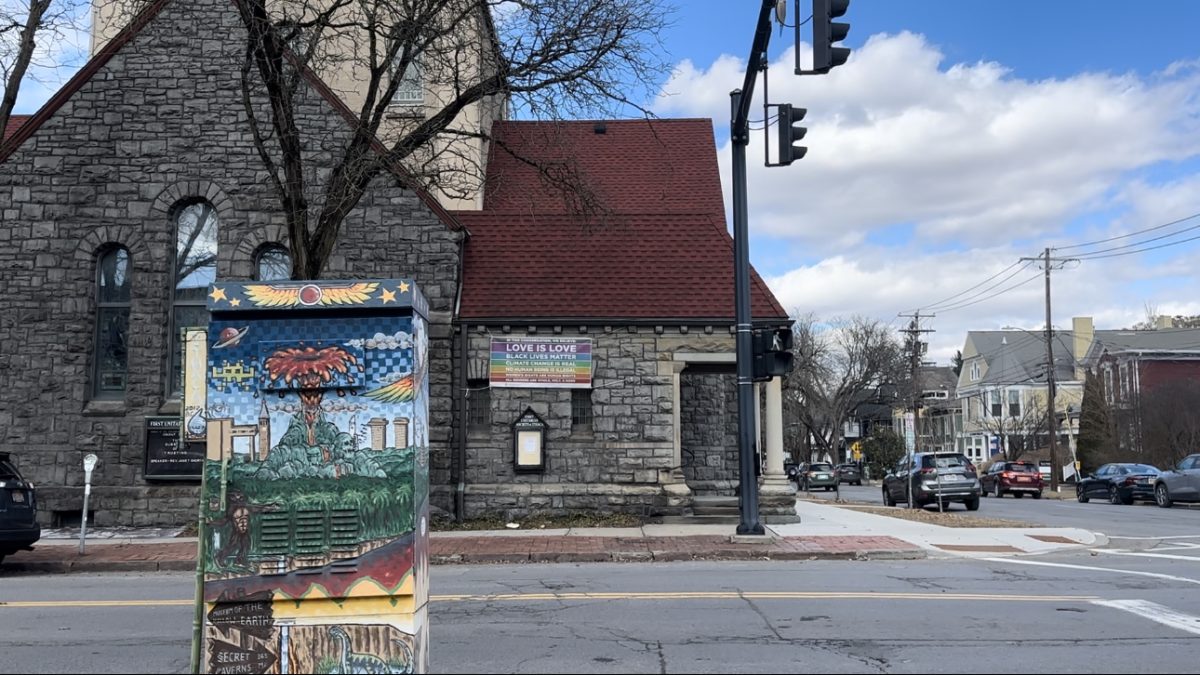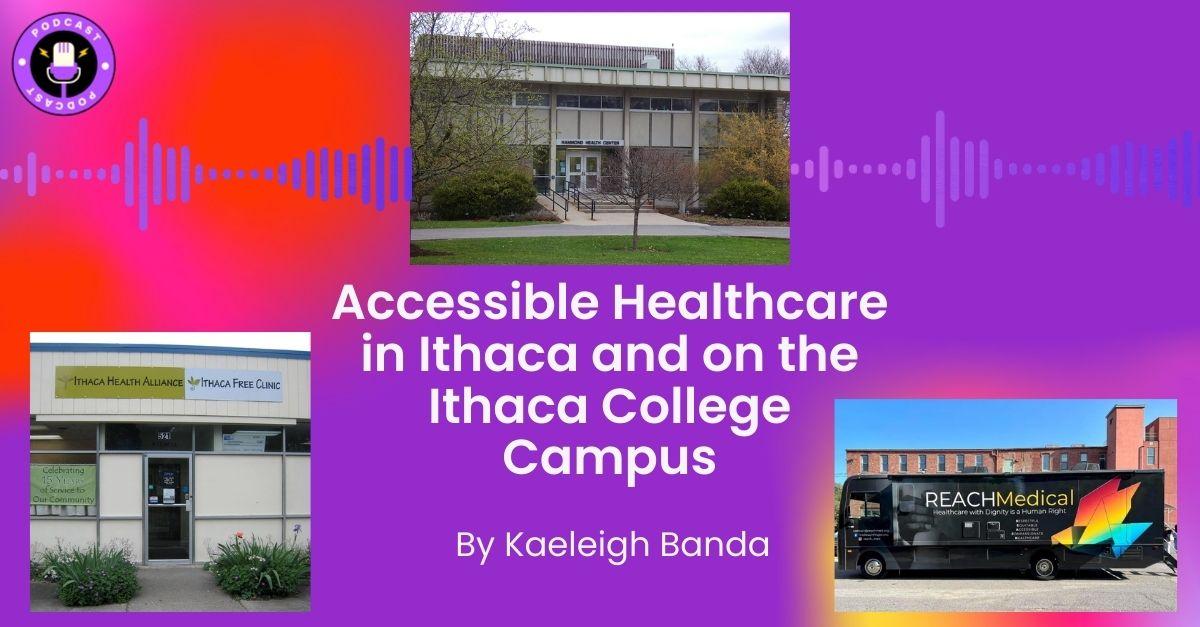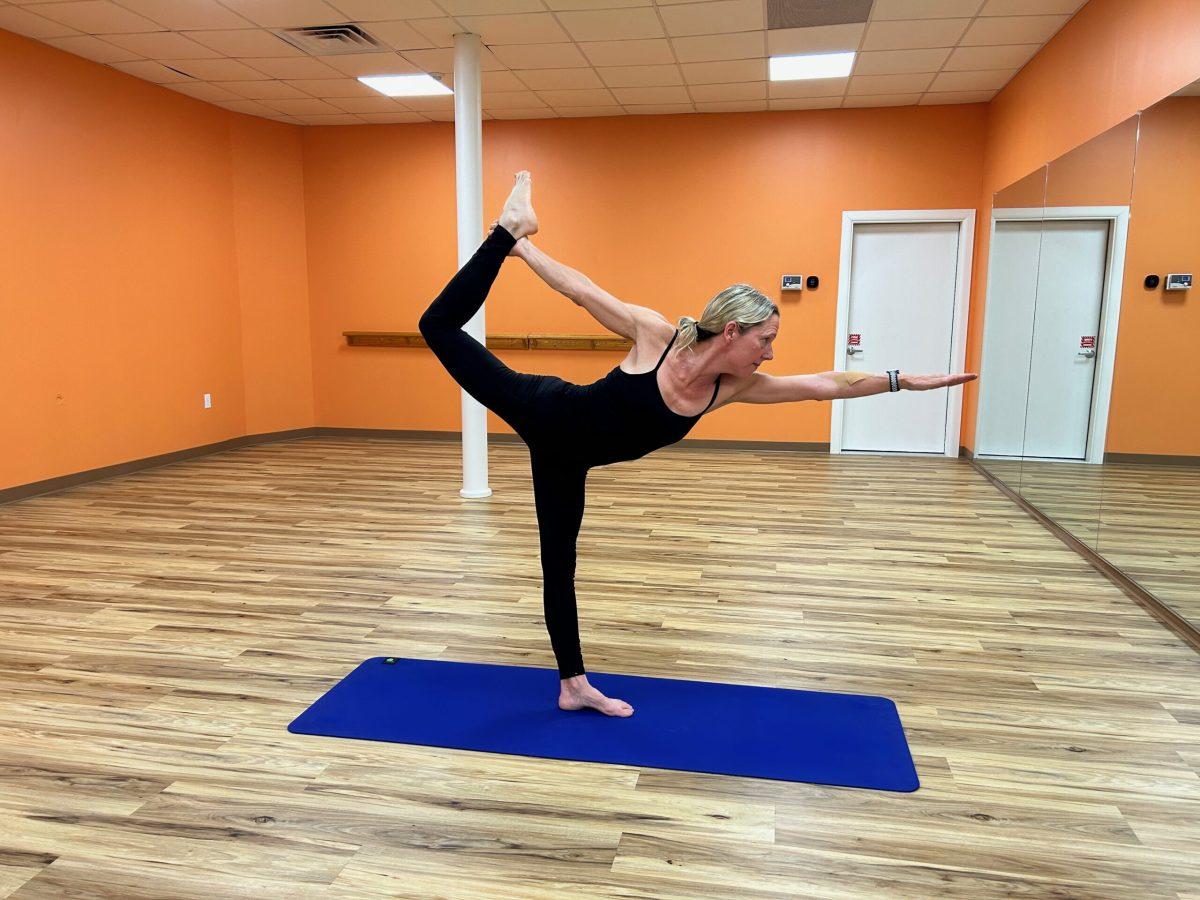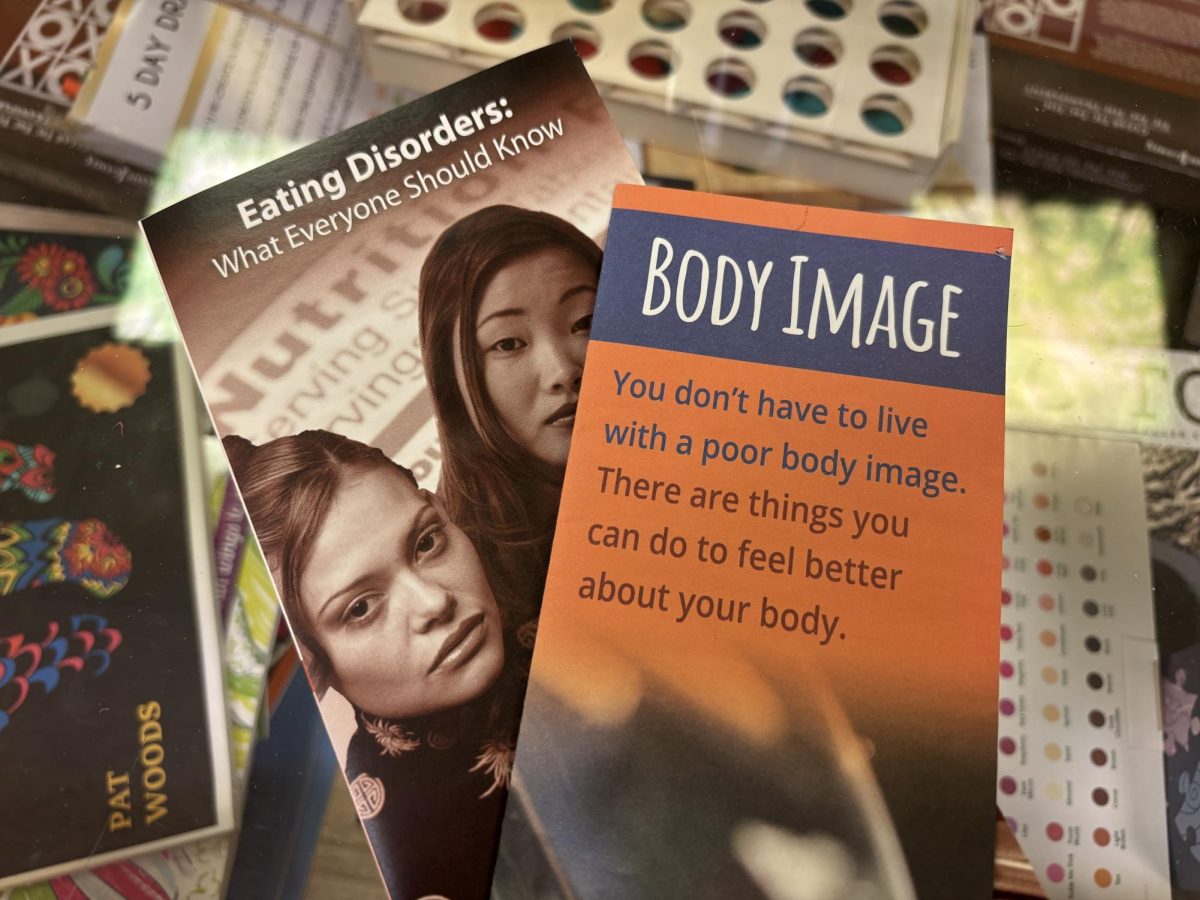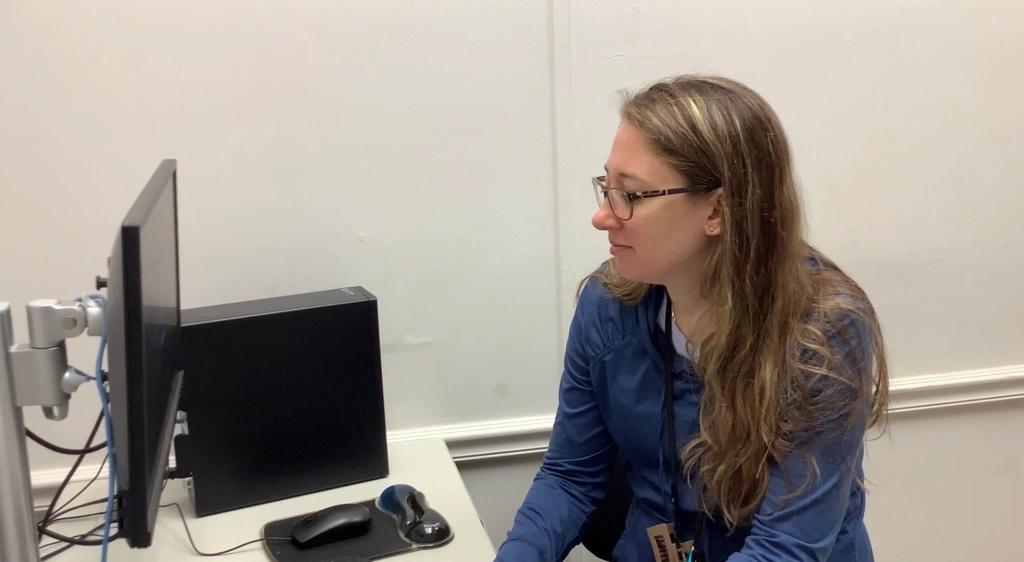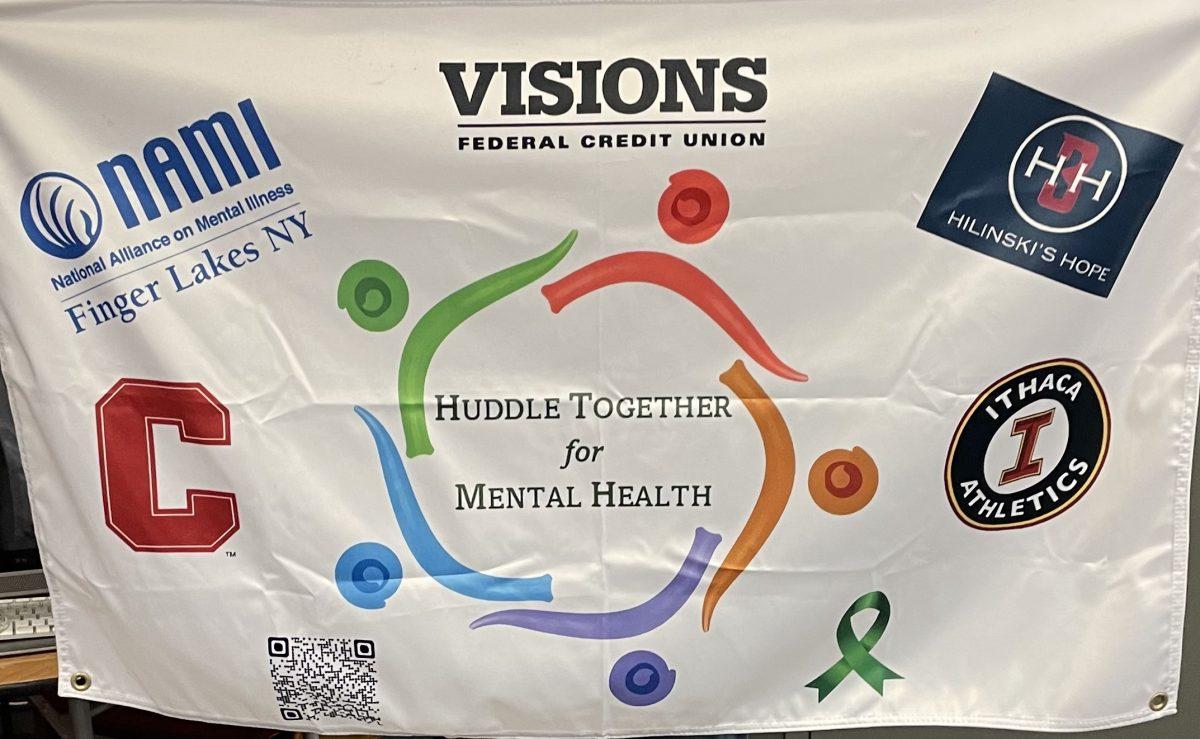Meditation has always been around yet once the pandemic affected everyone, many were looking for ways to cope with the chaos and madness that was happening around the world. Department of Gerontology (Aging Studies) Professor Mary Ann Erickson, Department Chair of the Health Promotion and Physical Education Department Julia Lapp, and Psychology Professor Kathryn Caldwell, decided to take action about five years ago in their classes and across campus to implement the benefits of meditation and mindfulness. They then later created the Noon Hour Meditation, which took place in person at IC’s Muller Chapel.

Ithaca College’s Muller Chapel during sunset hour (Photo by Brianna Diaz)
According to a US News article, when researching more on the mental health of college students both pre-covid and during covid, they stated: “…Between 42% and 56% of spring 2021 study participants were at risk for clinical depression.”
As an Afro-Latina, growing up and talking about my emotions and feelings wasn’t really a thing and if it was brought up in conversation, they were both hard and awkward conversations to have with my family. As I got older, I’ve come to realize that not discussing my feelings or emotions stemmed from generations of family before me who never spoke to their children and led to me not taking mindfulness/meditation into account.
According to the Child Mind Institute, “Nearly one in four parents, or 22%, reports being concerned about a child’s mental health.” and “While most parents with concerns sought treatment (87%), almost half (43%) waited more than a year and nearly a quarter (22%) waited more than two years to get help.”
Both Erickson and Lapp noted how it’s important for both space and the environment that you’re in, especially in meditation or when taking those classes that involve mindfulness/meditation (i.e. Contemplation, and Meditation Is Not What You Think), for it to be welcoming to all, regardless of race, ethnicity, skin color, religion, disability, and sexual orientation.
In Tompkins County, there’s a high percentage of white identifying people and a low percentage of black, indigenous, people of color (BIPOC). Erickson and Lapp both expressed that even though it’s an uncomfortable conversation to have, the more you practice and implement mindfulness/meditation into your daily life, the better you and your health can and will improve.
“I think meditation is so helpful in helping to manage stress and anxiety because so much stress and anxiety is about how we interpret what’s happening in the world or what’s happening to us and we create our own stress…,” said Lapp.
“There’s an idea in American society that our health and wellness is just up to us and think there’s a pretty pernicious idea about mindfulness which is it can solve everything. All you have to do is adjust your mindset and then you can be fine regardless of the external circumstances of your life and that’s not true! It’s not going to solve lack of access to healthcare, or lack of access to education, or discrimination in housing, it’s not that we should sit back and say ‘well it’s ok I can understand my feelings, and then let it set. A lot of mindfulness practitioners see mindfulness as a tool that activists can also use to see the best way forward…,” said Erickson.
As of Fall 2021, from the Office of Analytics and Institutional Research, the percentage of white-identifying students, faculty, staff, and administration at IC is 72.4%, 20.7% of BIPOC, 2.1% as International, and 4.8% as Unknown.
None of us realize how important meditation, health, wellness, and mindfulness are when it comes to our everyday lives, regardless of who or what you identify as. In our interview, Lapp expressed not only the importance but also the benefits of mindfulness/meditation, especially when in extreme spaces that aren’t calm.
“I do believe that is a very powerful practice because it helps us to be able to focus and even though we’re sitting and there’s people walking around … and maybe we feel self-conscious… those thoughts come and go and to continue sitting…” [AA1] Lapp said.
Erickson said: “I think having the resources to cope with what life brings to you, so feeling like you have the physical resources to respond, the emotional resources to respond, the social resources to respond, spiritual resources, and how mindfulness fits into that I think as a coping resource… If I’m envisioning health and wellness as a state where you have resources to manage, for me that feels like a lot of what mindfulness is. It gives a little bit more of resilience, mental and emotional resilience. You still make mistakes, you still feel bad when bad things happen, but you know that you have kind of a refuge, you know that you have a technique that will help you find a little stability…”

The Inside of Ithaca College’s Muller Chapel’s Gathering Hall (Photo by Brianna Diaz)
On IC’s Campus, The Office of Religious and Spiritual Life offers a multitude of organizations, activities, events, retreats, and more. While including Mindful IC, they offer many aspects like Noon Hour Meditation, Mindfulness Circle, IC Unplug, Black Girl in Om, Daylong Meditation Retreat, and so much more. They’ve also included many resources and apps that can be used daily. One of them is Sanvello, which is an app, free for IC students that helps guide and relieve your symptoms of stress, anxiety, and depression. The Center for Counseling and Psychiatric Services (CAPS) also offers a variety of resources such as counseling, group therapy, and more for all IC students, whether you’re living on or off-campus.
In addition, the local Ithaca community as well offers many organizations when it comes to meditation, mindfulness, health, and wellness. There is the Ithaca Zen Center, Tompkins County Public Library offers Virtual Midday Meditation, Namgyal Monastery Institute of Buddhist Studies, Rootwork Herbals, Tompkins County Mental Health Services, and We Care for Us: Community Care Clinic.
For ways to start your healthy journey on mental health and wellness, visit the National Alliance on Mental Health website for more. Understand that you are not alone when it comes to your mental health. Don’t be afraid to ask for help and know that there are many resources both locally and within our campus to help you start your healing journey.

